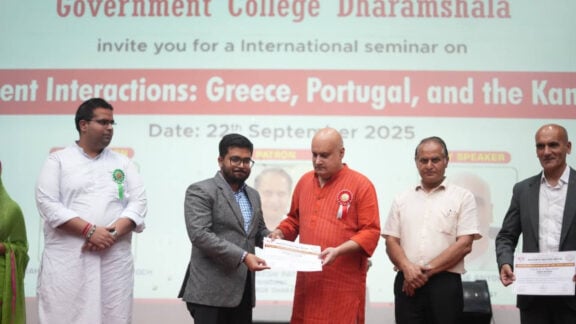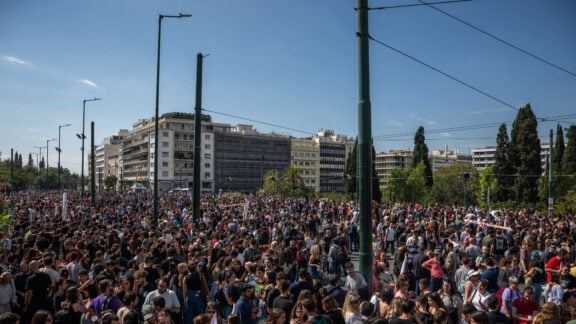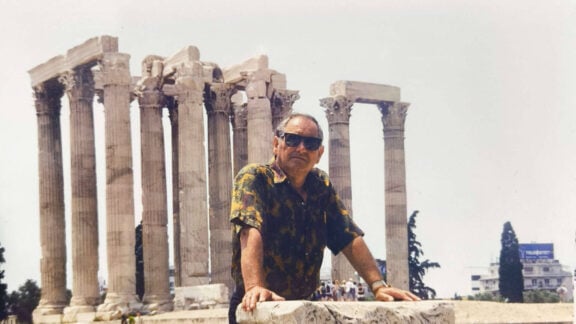Just when you thought things couldn’t get worse, they do exactly that. It would be surprising if it wasn’t Greek football. But it IS Greek football so it’s not as hands-on-cheeks-shocking as one would think.
In case you missed it, the Hellenic Football Association has suspended all Greek league and cup football competitions until further notice. Or rather, until a full-scale investigation digs up some much needed answers, concerning the small matter of someone trying to burn down the house of Giorgos Bikas, president of the current refereeing committee.
That’s right. On Wednesday 9 November, the house of George Bikas was used to send a ‘fiery’ message to not just the head of the refereeing committee, but to the entire bruised body of Greek football. The message was really rather simple, as is the case with all messages sent through the medium of a house-on-fire: “Whatever you think you want to do to change the current state of Greek football, DON’T. This isn’t your game to control, no matter what the government has to say about it. The game stays corrupt. The game stays controlled. The game is still OURS.”
Who THEY are is open for debate and passionate discussion, but what isn’t up for debate is that moving behind the curtains and the shadows of the Greek football establishment is a criminal organisation, highly organised, highly determined and, according to their latest message, Mafia-like in their show of muscle.
For anyone closely following developments in Greece, this isn’t new. This latest escalation is just another chapter in the many chaptered story of what lies at the heart of Greek football. Teams taking bribes, fixed matches, threats, violent ‘messages’ to make sure everyone stays in line − this has all been well documented and investigated already, though sadly produced few results. A handful of convictions? Sure. But nothing to show that the case has been truly solved.
This latest attack comes on the back of Giorgos Tsachilidis, another member of the refereeing committee, being threatened by two individuals on his very doorstep, an incident which originally led to the resignation of all members of the committee, including Bikas. Bikas, however, was convinced to soldier on, a decision that ultimately led to the arson attack on his home. From threats, to arson attacks, and then what? Mafia-style executions?
The top teams in Greece were quick to offer their support to Bikas, the Hellenic Football Federation and the SYRIZA and An.El. government coalition who are trying to fight back against this ‘mysterious’ criminal organisation. PAOK, Olympiakos and Panathinaikos have all openly served up words of condemnation, but surely words are not doing the trick here and it seems, neither are constant league and cup suspensions ‘until further notice’.
Suspending football action won’t scare away an organisation that sees the sport as a fat and juicy cash cow that still has a lot to offer them. It doesn’t work that way. The arson attack on the house of Giorgos Bikas clearly illustrates that the stakes are now higher, that this is no longer a case of this being something that the Greek authorities can wish away, or pretend is not actually there.
Not too long ago, the Greek intelligence services compiled an impressive body of data, made up of taped telephone conversations, the content of which all pointed to the existence of a criminal organisation handling Greek football affairs. Referees, players, team board members (most notably Olympiakos head honcho Vaggelis Marinakis) were all implicated in a scandal that should have shaken Greek football to its very core, but, as is the case with many scandals in Greece, the shock and awe of it soon subsided and people went about their business soon enough, pretending it never happened.
Unfortunately for that way of handling things, this is no longer a case that can be swept under the carpet. It requires brave decisions and moves that go well beyond a two week go-to-your-room-until-you’re-sorry break. Greek football is on the very edge of a cliff and the authorities need to simply stop being diplomatic about it.
Would it cost the teams money if the league and cup competitions for this season were locked down and stopped? Yes it would. Would it cost the teams money if the government went ahead and locked out Greek football from European competition? Yes it would. But both decisions would send a message. A strong message. That enough is enough. A message that would shout out that if Greek football remains the corrupt, stinking mud pool it is today, then there is absolutely no point in pretending it’s a shimmering lake of crystal-clear waters.
Dry it up, push out the gangsters, the thugs, the hooligans and the criminal elements that have made it their home and start over.
Sometimes, the only option is the hardest one.








